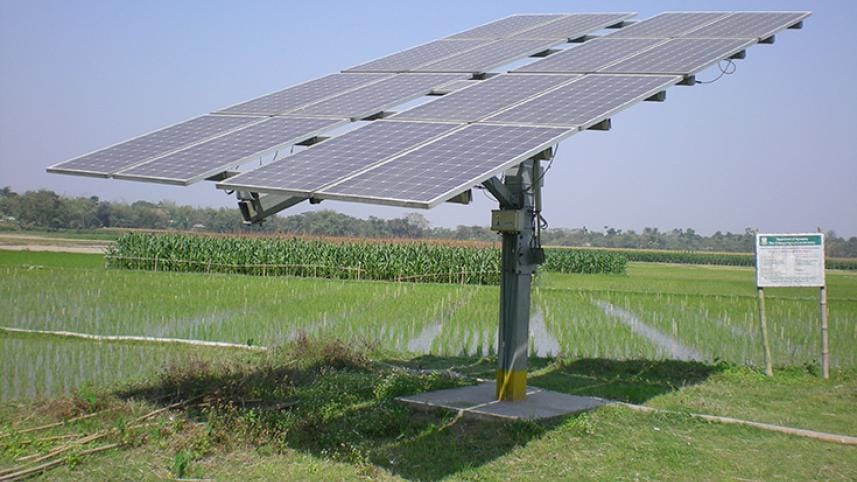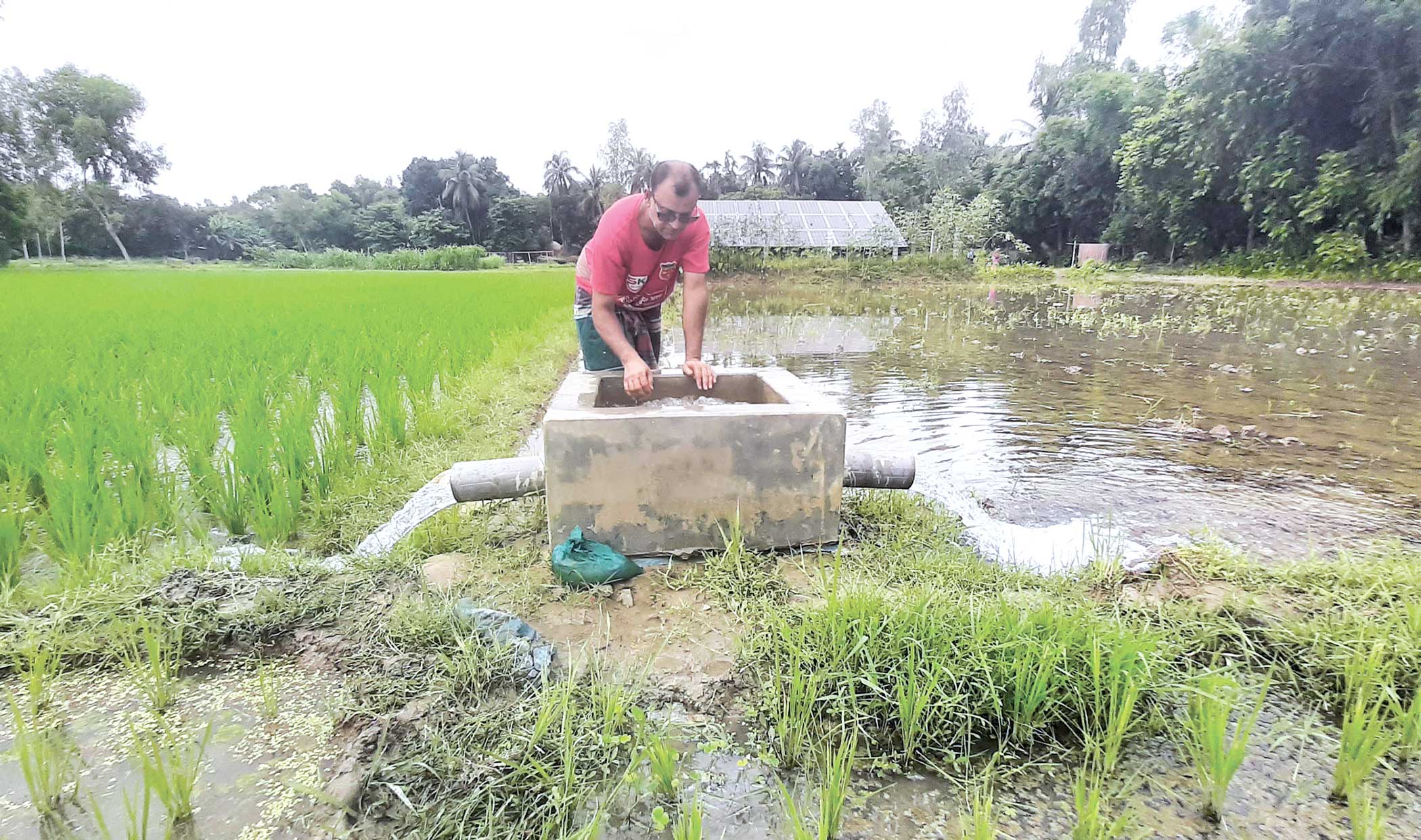Slow progress in BREB solar pump project

A project undertaken by Bangladesh Rural Electrification Board (BREB) to install 2,000 solar-powered irrigation pumps has been advancing at a snail's pace.
The BREB, under the energy and power ministry, took up the Tk 394 crore project in 2018 to reduce dependency on electricity generated by fossil fuels and reduce carbon emissions.
Four years have passed and the state agency could so far install 75 of the pumps, which is just 4 per cent of the target.
Now only five months remain till the project's implementation deadline.
The BREB has already requested Asian Development Bank, the project's prime financier, to let the project be extended by another two years.
The BREB blames a lack of interest of farmers and cent per cent electrification in the country.
As per the project requirements, a farmer has to provide land and bear 35 per cent of the cost to set up a pump.
Of the cost, 10 per cent has to be deposited as down payment, which is difficult for many farmers to arrange at one go, said a top official involved in the project.
The government is to bear the rest of the cost and buy the excess electricity to cut fossil fuel-based power generation.
Under the project, the BREB wants to produce 19.3 megawatts of electricity and reduce carbon emission by 13,624 tonnes.
However, only five pumps have been connected to the national power grid, said the Implementation Monitoring and Evaluation Division (IMED) under the planning ministry in an evaluation report on the project released last month.
The report comes at a time when Bangladesh is going for power cuts across the country to manage soaring import costs of fuel for the Russia-Ukraine war and reduce pressure on falling foreign exchange reserves.
The IMED report said the project could not be completed on time for the pandemic which hiked prices of various materials and caused shipment delays.
Weaknesses in the feasibility study and slow implementation efforts also caused delays, said officials at the IMED.
At the current pace, the IMED said, a total 705 solar pumps, including the already established 75, were likely to be established within the project deadline, that is December 2022.
The installation of the rest of the 1,295 pumps is unlikely to be completed within the deadline, it said.
Mohammad Hannan Sarkar, a farmer at Tangail sadar upazila, set up one of the solar powered irrigation pumps in February. He earlier used to avail electricity from the mains.
The new pump has a capacity of 4KW and can water a maximum of 6 acres of land.
Hannan said the solar irrigation pump can be switched on from 8:00am to 4:30 pm and stops automatically when it rains.
He said he would have to use the pump to irrigate his farmland for three months as per his contract with the BREB.
"I have been told that the electricity that will be generated during the rest of the time will be purchased from me and added to the national grid," he said.
Md Sakil Ibne Sayeed, director of the project, claimed that they had already set up 150 solar irrigation pumps under the scheme.
"We are not getting enough customers to purchase the solar pump locally," he said.
"It's like a new model in Bangladesh. It costs much more than the normal pump. But the longevity period of our pumps will be higher than the normal ones that expires after 20 years," he said.
On weaknesses in the feasibility study, Sayeed, also an executive director of the BREB, said they conducted the study in fiscal year 2016-17 when around 60 per cent of the population was under electrification.
But electricity connections increased later, discouraging many from using solar power for irrigation, he added.
MA Razzaque, director of the Policy Research Institute, said implementation of such projects should now be given topmost priority.
"It is high time to consider bold measures with a time-bound and accountable implementation process and to tackle carbon emissions and strengthen energy security," he said.




 For all latest news, follow The Daily Star's Google News channel.
For all latest news, follow The Daily Star's Google News channel. 
Comments